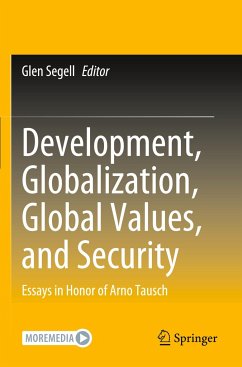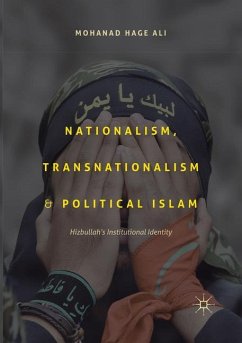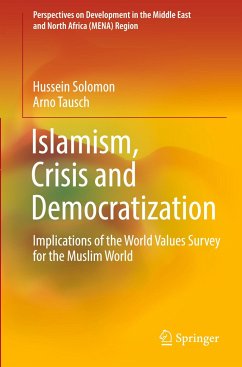
Homonegativity and Religiously Motivated Political Extremism
A Study Based on World Values Survey Data from 88 Countries and Territories
Versandkostenfrei!
Versandfertig in 6-10 Tagen
31,99 €
inkl. MwSt.

PAYBACK Punkte
16 °P sammeln!
This open access book describes the world's increasingly multicultural societies face the problem that more and more diverse lifestyles (LGBTQIA+ communities) are not universally accepted, and that today, in addition to xenophobia, racism and anti-Semitism, there is substantial homonegativity. This book explores this issue, reviews the empirical literature on the subject and provides new empirically based evidence on a global and European scale. Based on an analysis of The World Values Survey using the statistical software SPSS, it provides a scientifically sound answer to the question of whic...
This open access book describes the world's increasingly multicultural societies face the problem that more and more diverse lifestyles (LGBTQIA+ communities) are not universally accepted, and that today, in addition to xenophobia, racism and anti-Semitism, there is substantial homonegativity. This book explores this issue, reviews the empirical literature on the subject and provides new empirically based evidence on a global and European scale. Based on an analysis of The World Values Survey using the statistical software SPSS, it provides a scientifically sound answer to the question of which social groups in Europe and around the globe are more homophobic and which are less, together with insights into the multivariate relationships between homonegativity and religiously motivated political extremism. The extensive and representative statistical samples allow cautious conclusions to be drawn for smaller religious groups in the European Union and other countries around the world.














